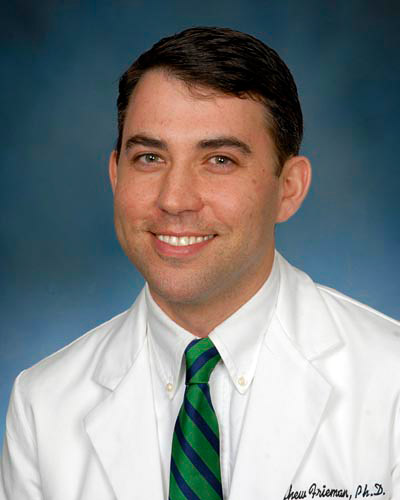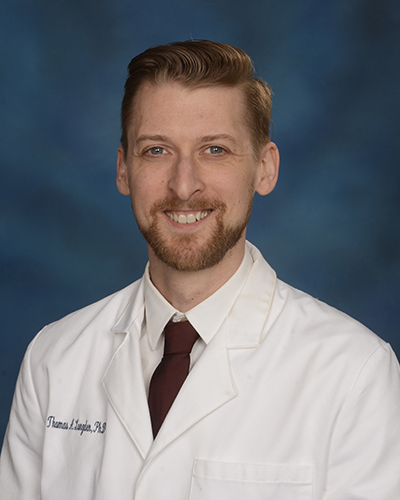October 19, 2021 | Deborah Kotz

Full Endowment of $2.5 Million Includes Funds from Philanthropic Donors and Matching State Funds
 University of Maryland School of Medicine (UMSOM) Dean E. Albert Reece, MD, PhD, MBA, announced today that the School of Medicine has been awarded $1.25 million in matching funds from the Maryland E-Nnovation Initiative Fund (MEIF), administered by the Maryland Department of Commerce. The funds, totaling $2.5 million when combined with private philanthropy, will enable the establishment of a new Center for Pathogen Research. They will also enable the UMSOM to support research professorships in the Department of Microbiology and Immunology and the Department of Neurology.
University of Maryland School of Medicine (UMSOM) Dean E. Albert Reece, MD, PhD, MBA, announced today that the School of Medicine has been awarded $1.25 million in matching funds from the Maryland E-Nnovation Initiative Fund (MEIF), administered by the Maryland Department of Commerce. The funds, totaling $2.5 million when combined with private philanthropy, will enable the establishment of a new Center for Pathogen Research. They will also enable the UMSOM to support research professorships in the Department of Microbiology and Immunology and the Department of Neurology.
The Alicia and Yaya Foundation made a $750,000 philanthropic commitment to establish the Alicia and Yaya Foundation Professorship in Pathogen Research in the Department of Microbiology and Immunology. Matching state funds bring the total to $1.5 million, which will establish an endowed professorship for Matthew Frieman, PhD, Associate Professor of Microbiology and Immunology at UMSOM. He will also serve as the director of a new Center for Pathogen Research.
Dr. Frieman is one of the nation’s leading researchers on coronaviruses, publishing dozens of research studies over nearly two decades on the inner workings of these viruses and how certain novel strains led to outbreaks of severe acute respiratory syndrome coronavirus (SARS) and Middle East respiratory syndrome coronavirus (MERS). For the past 20 months, his research has focused exclusively on developing vaccines and novel treatments, like monoclonal antibodies, for COVID-19, which is caused by the SARS-CoV-2 coronavirus.
“I am truly honored to receive this endowed professorship and will continue to accelerate our department’s ongoing research portfolio through basic and translational research discoveries in the field of novel coronaviruses and other emerging pathogens of concern,” said Dr. Frieman. “I am proud that the groundwork we laid during the early months of the COVID-19 pandemic has translated into lifesaving vaccines and treatments.”
Dr. Frieman is an internationally-recognized virologist and specializes in the highly pathogenic coronaviruses that include SARS, which emerged in 2003, MERS, which emerged in 2012, and SARS-CoV-2, which emerged in 2019.
UMSOM also established the William E. and Sally H. Brown Professorship in Parkinson's and Movement Disorders with $500,000 of eligible matching philanthropic dollars from William E. and Sally H. Brown and $500,000 in state funds. When combined with the Brown’s previous philanthropic support, this brings the fund value to over $1.5 million. It will allow the school to recruit an internationally-recognized physician-scientist specializing in neurodegenerative disorders such as Parkinson’s or Alzheimer’s Disease.

Research enabled by the MEIF initiative will focus on new applications towards clinical use and potential commercialization to bring new intellectual capital to the state of Maryland. The E-Nnovation program, which was created as an economic stimulus in 2014, is a special non-lapsing fund designed to help the state’s research universities recruit and retain top scientists and investigators. Under the fund, approximately $8.5 million will be appropriated by the governor each year from fiscal years 2016 through 2021.
“Continued funding from this initiative has been vital for us to provide our outstanding faculty members with the critical resources they need to sustain and expand the promising research they endeavor to carry out,” said Dean Reece, Executive Vice President for Medical Affairs at UM Baltimore, and the John Z. and Akiko K. Bowers Distinguished Professor and Dean, University of Maryland School of Medicine. “The funding also enables our faculty to launch new initiatives, like the Center for Pathogen Research, to educate and train future physician-scientists, and to continue making groundbreaking discoveries to potentially impact disease burdens and human health.”
In addition to UMSOM, the Maryland Department of Commerce joined seven other local colleges and universities in endowing a total of $21.2 million to fund a dozen new research professorships. The endowments were made through the Maryland E-Nnovation Initiative (MEI), a state program created to spur basic and applied research in scientific and technical fields at the colleges and universities. The schools raised a total of more than $10.6 million in private funding for each chair and Maryland Commerce approved matching grants of $10.6 million to support the endowments.
The other schools receiving the matching funds are Goucher College; Hood College; Johns Hopkins University; Morgan State University; the University of Maryland, Baltimore County; the University of Maryland, College Park; and Washington College.
About the University of Maryland School of Medicine
Now in its third century, the University of Maryland School of Medicine was chartered in 1807 as the first public medical school in the United States. It continues today as one of the fastest growing, top-tier biomedical research enterprises in the world -- with 46 academic departments, centers, institutes, and programs, and a faculty of more than 3,000 physicians, scientists, and allied health professionals, including members of the National Academy of Medicine and the National Academy of Sciences, and a distinguished two-time winner of the Albert E. Lasker Award in Medical Research. With an operating budget of more than $1.2 billion, the School of Medicine works closely in partnership with the University of Maryland Medical Center and Medical System to provide research-intensive, academic and clinically based care for nearly 2 million patients each year. The School of Medicine has nearly $600 million in extramural funding, with most of its academic departments highly ranked among all medical schools in the nation in research funding. As one of the seven professional schools that make up the University of Maryland, Baltimore campus, the School of Medicine has a total population of nearly 9,000 faculty and staff, including 2,500 students, trainees, residents, and fellows. The combined School of Medicine and Medical System (“University of Maryland Medicine”) has an annual budget of over $6 billion and an economic impact of nearly $20 billion on the state and local community. The School of Medicine, which ranks as the 8th highest among public medical schools in research productivity (according to the Association of American Medical Colleges profile) is an innovator in translational medicine, with 606 active patents and 52 start-up companies. In the latest U.S. News & World Report ranking of the Best Medical Schools, published in 2021, the UM School of Medicine is ranked #9 among the 92 public medical schools in the U.S., and in the top 15 percent (#27) of all 192 public and private U.S. medical schools. The School of Medicine works locally, nationally, and globally, with research and treatment facilities in 36 countries around the world. Visit medschool.umaryland.edu
Contact
Deborah Kotz
University of Maryland Medicine
dkotz@som.umaryland.edu
(410) 706-4255
Related stories

Wednesday, June 16, 2021
UM School of Medicine Researchers Awarded $5 Million NIH Grant to Improve Use of Genetic Risk Scores in Diverse Populations
Researchers at the University of Maryland School of Medicine (UMSOM) have received a $5 million federal grant to pool genomic information from existing and new datasets – predominantly in African and African American populations -- in order to calculate the risk of developing specific diseases. They will use sophisticated modeling and genetic datasets to calculate the risk, known as a polygenic risk score, with an emphasis on studying people from different ancestries.

Tuesday, October 06, 2020
UM School of Medicine Scientist Receives Prestigious NIH Director's New Innovator Award
$2.3 million Award Targeted for “High-Risk, High Reward” Research that Aims to Understand Contribution of Blood Flow to Brain Plasticity
